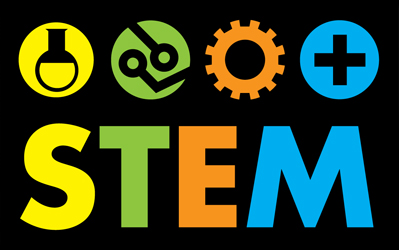|
You can impart remarkable service that will set your products and services completely apart from every other in your market. It's possible because you are unique, creative, and capable of making friends.
It's going to cost you though. You're going to have to care more...a lot more. But, here are three reasons why you have no choice: 1. Remarkable Service Makes You Remarkable.
2. Remarkable Service Makes You Trustworthy.
3. Remarkable Service Makes You Better.
Remarkable customer service has to be part of your strategy. If you're going to "get around to it" you never will. Make a plan and start leading by example. Live it with your example before you make a power point presentation about it.
2 Comments
Recently, in an effort to better understand our national economy I read Rising Above the Gathering Storm: Energizing and Employing America for a Brighter Economic Future. I wanted to understand why we have such high unemployment, yet leave so many jobs go unfilled in the fields of science, technology, engineering, and math (STEM).
To gain a better grasp on the STEM crisis (and it is a HUGE crisis by the way), this brief Executive Summary will bring you up to speed. Currently, only four percent of our nation’s workforce is composed of scientists and engineers - and this number has been rapidly declining in recent years. Why is this important? Well, because this group disproportionately creates jobs for the other 96 percent. Leverage is at play in our economy. Everyone benefits when we have more science nerds, gear heads, tech geeks, and mathletes. When there's progress in the lab the multiplier goes into affect, starting with the scientist and engineer inventors, then streams down to benefit the entrepreneurs who rally investors and manage the risk, their skilled workers who build the products, the marketer who connects it with consumers and creates demand, the truck driver who delivers, the salesperson who sells, and the maintenance person who repairs, and of course the consumer who realizes the benefits. Additionally, for every job that is directly created in this said chain of manufacturing and marketing activity, on average another 2.5 jobs in disparate labor such as: operating restaurants, grocery stores, barber shops, filling stations and banks is generated. Progress enabling products like: smartphone apps, MRI machines, robot exoskeletons, genetically modified silk, invisibility cloaks, spray on skin, 3-D printers, self-driving cars, artificial bone, sustainable disposable solar panels, eye implants, and flexible glass are built on the work of a few scientists. In several years (or less) these breakthroughs will create millions of jobs. Right now we have the jobs we do because of products that were still in research just a few decades go: the Internet, CT scanners, iPods, and GPS. When our children are young they are sponges. They enjoy learning letters and numbers. Eventually they discover they enjoy STEM subjects because they can be fun to learn and it's personally satisfying to solve a math problem, build a robot, or reach a conclusion for the school science fair project. Then something happens at the end of high school and in college. STEM is not as fun and it gets hard. They hit the dip - the learning curve. Learning gets harder and they opt to drop out or focus on something easier because they're afraid, discouraged, and/or can't see the bigger picture of how they can be a part of something huge. We can't let this happen. If your son and/or daughter is interested even slightly in STEM, then motivate and guide them to pursue their interests to their full potential. My perspective about training has changed forever. Special thanks to Mike Myatt for sharing The #1 Reason Leadership Development Fails.
Mike has taught me that "training is...the #1 reason leadership development fails." I asked myself, "Really? Training? Why?" The answer is because "development strives to call out the unique and differentiate by shattering the status quo." Training really is an attempt, "to standardize by blending to a norm and acclimating to the status quo." And the status quo is something we all need to fight. The reason why training kills leadership is because it presumes and assumes. "It presumes the need for indoctrination on systems, processes and techniques...[and] assumes that said systems, processes and techniques are the right way to do things." I've never been a fan of best practices (we do it all too often in academia) because as Mike points out, "Training is...a rote, one directional, one dimensional, one size fits all, authoritarian process that imposes static, outdated information on people." I think the primary reason I despise trainings is because I don't enjoy lectures and such one directional presentations. I need to ask questions, I want people to ask me questions. I crave meaningful dialogue. I don't care what happened in the past. I learn so I am better prepared to meet future needs. From now on, every time I am invited to attend a conference and give a "Best Practices" presentation I'm going to call it "Next Practices" and we're going to have a dialogue! That's a promise...a challenge to the status quo. Training is for mindless cogs, non-thinkers, sheepish people who want to work in a factory and be told what to do. Development is for innovators, critical thinkers, and creative problem solvers. We don't need more factory workers, we need creative problem solvers. If you're like me, you still need help determining the difference. Here are Mike's 20 points that differentiate between training and development:
The most important thing I've learned about leadership is that you don't need permission to lead.
In my career, I live by and teach this Five Step Plan. It applies to just about everyone and everything: 1. Go, make something happen. 2. Do work you're proud of. 3. Treat people with respect. 4. Make big promises and keep them. 5. Ship it out the door. When in doubt, see #1. Not that you needed it, but I give you permission to lead. |
Paul Hill, Ph.D.I design, plan, and evaluate economic development programs for Utah State University. Archives
September 2022
Search this site:
|






 RSS Feed
RSS Feed
